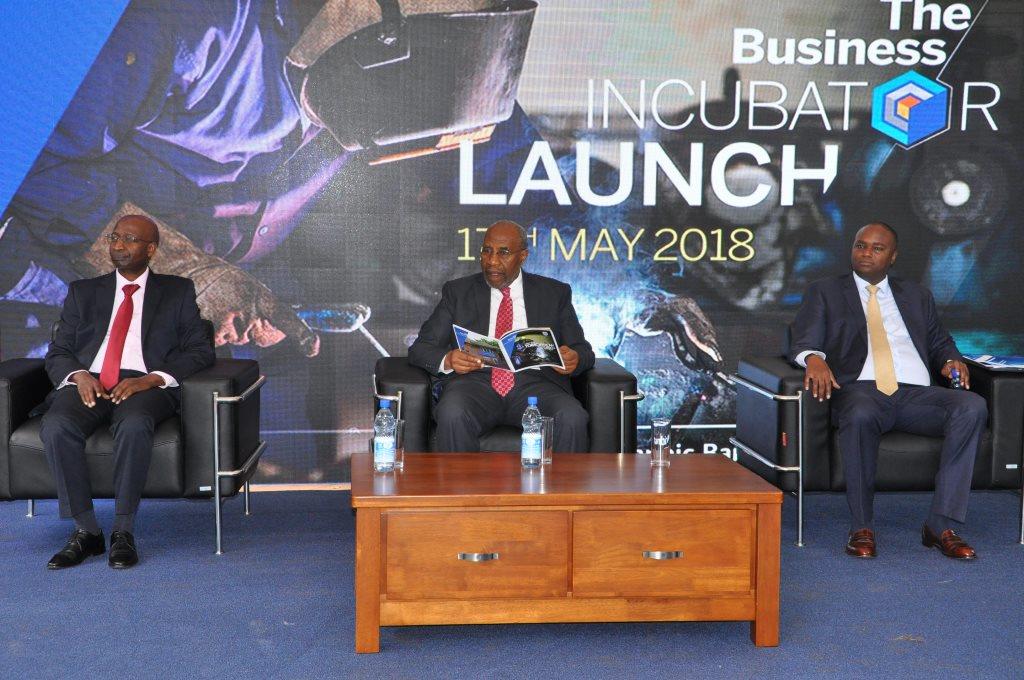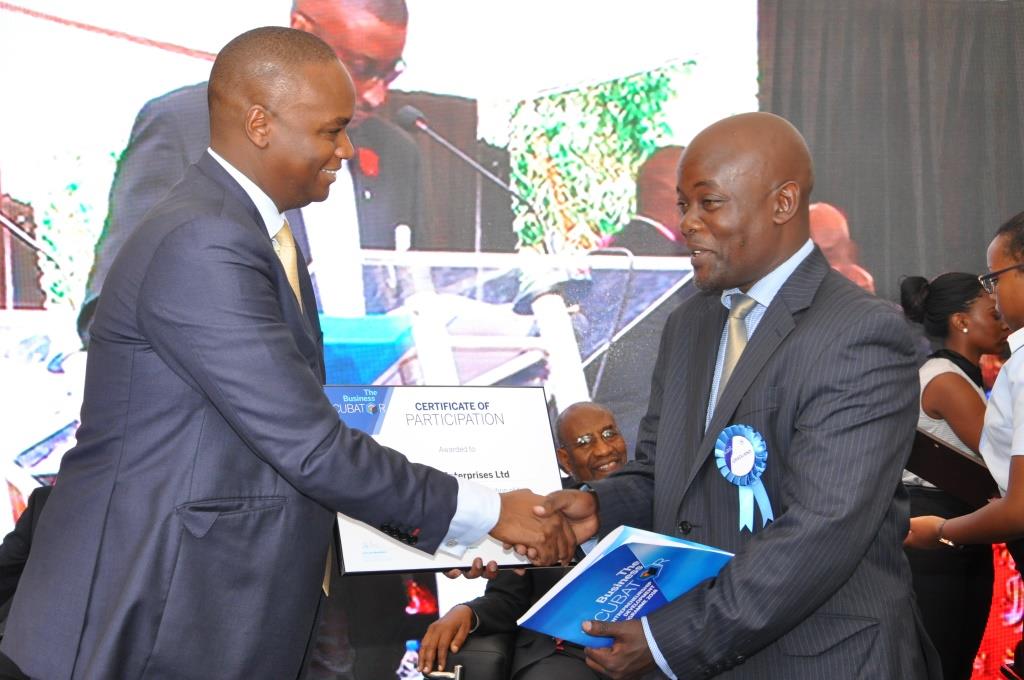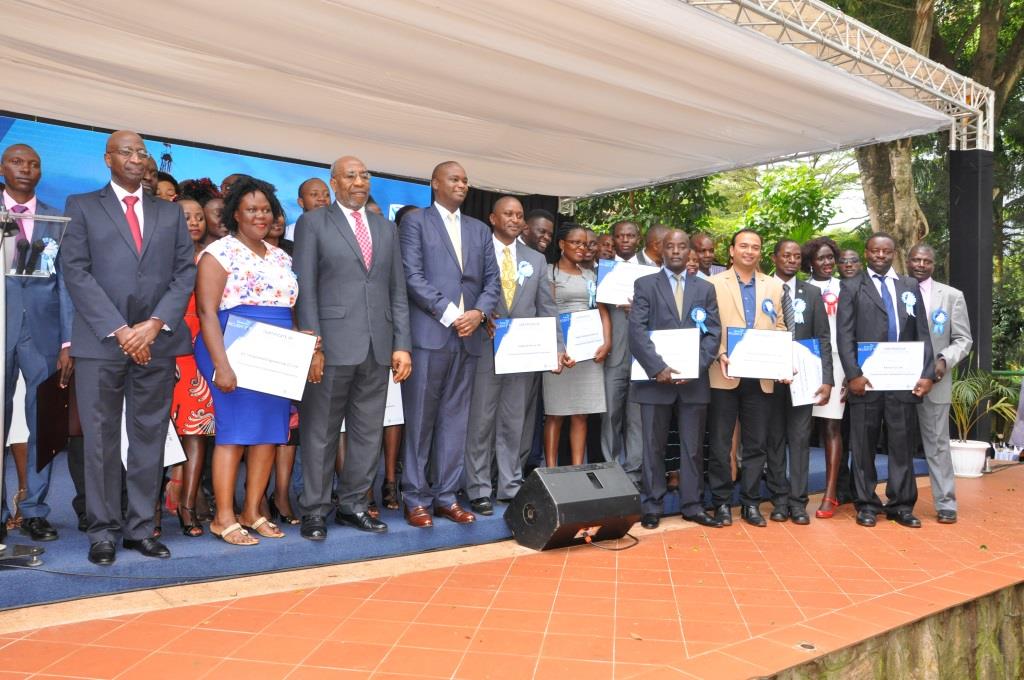In line with supporting local content participation within the oil and gas sector boom, Stanbic Bank in partnership with key stakeholders in the oil sector have churned out the first cohort of 34 SME owners that underwent training in the business incubator.
The Entrepreneur Development Programme is purposed to equip Ugandan Small and Medium Enterprises (SMEs) with the necessary skills, knowledge and understanding of the requisite standards required to successfully participate in the Oil and gas sector, and to run their businesses in a sustainable and profitable manner.
The entrepreneurs were officially commissioned on Friday at an event presided over by Prime Minister, Dr Ruhakana Rugunda in Kololo.
Stanbic Bank Chief Executive Officer, Patrick Mweheire said the trained SME owners represent a new dawn in the new relationship between the bank and SME’s who form the back bone of the economy.
“For too long, many stakeholders have spent a lot of time talking about the challenges SMEs face without presenting any solutions. The Business incubator was conceived in order to buck the trend and reverse the status-quo,” Mweheire said.
“I am confident the entrepreneurs who have successfully completed the course will put the knowledge, skills and ideas from the programme to good use and therefore become a lot more professional and sustainable long term.”
Business sustainability is a major problem among Ugandan SMEs. Statistics indicate that despite their importance to the economy where they constitute 90% of the private sector, contribute 80% of all manufacturing output and provide 2.5 million jobs, only 30% of them live to celebrate their 3rd birthday.
“This is an acceptably low figure which cannot be tolerated going forward, otherwise the private sector will become stagnant and slowly die,” Mweheire warned.
SME owners were taken through various programmes and activities by industry and sector specialists as well as subject matter experts.
The training touched a variety of subjects including understanding the oil and gas sector, compliance and contracting, business and financial management, bid management, joint ventures and quality and other specialized areas.
The aim is to position SMEs to become better equipped to run their businesses and therefore better positioned to bid for, win and service major contracts with international oil companies.
After the training at the business incubator, Stanbic then provides a coach to each of the SMEs for a 9-month period to ensure that the incubator capacity building is appropriately put into practice in the market place.
Mweheire proposed that such an intervention be scaled across the country for it to have a meaningful impact on business sustainability and ultimately job creation.

In his keynote address, Prime Minister Ruhakana Rugunda thanked Stanbic for investing in the project which he observed was in line with government’s priority of promoting local content in the oil and gas sector.
“As government, we believe our people will only be able to maximise the benefits from our oil, if local companies are given the chance to participate in the sector. The positive trickledown effect of this happening is not questionable because SMEs touch all aspects of our economy,” the Premier said.
Rugunda noted that it is unlikely for international oil companies to bend their very high operational standards for the sake of giving Ugandan companies a foot in the door.
“So, collaborations are necessary between the public and private sector to find ways of providing local companies with capacity building, training and skills required to bring them up to the requisite standards,” he added.
The oil and gas sector is expected to be one of the mainstays of Uganda’s economic future with a minimum of USD 15 billion of investments projected over the next 10 years.
However, in order for the investments to have a lasting impact a minimum of 5% of this amount needs to be remain within the country.













